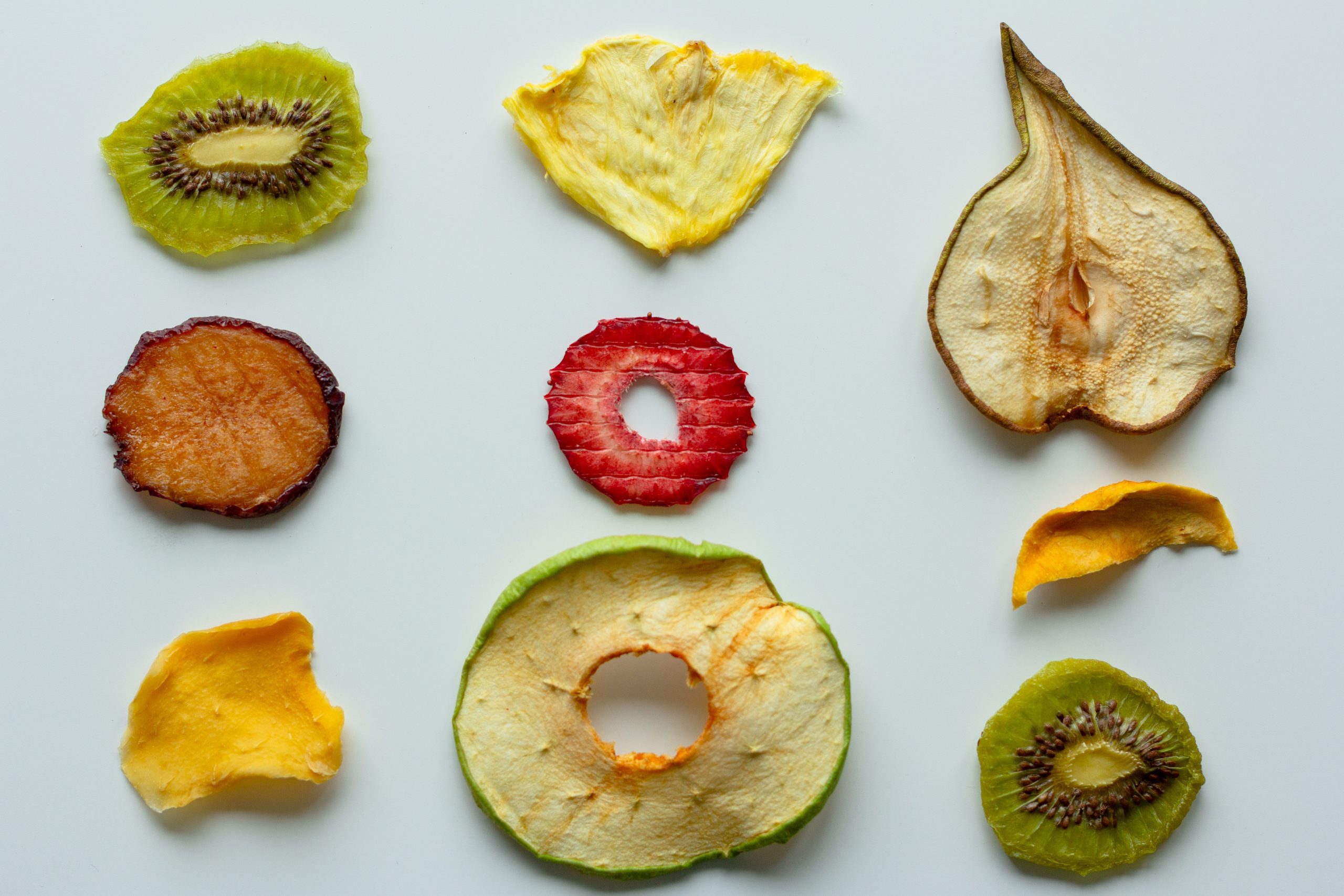- Immaculately Clean Facility
- Fully stocked changing rooms and showers
- FREE Body Scan
- FREE towel service
- Nutrition Coaching & Accountabiliy
- Expert coaches

It’s summer. Lower priced fruits and vegetables fill the markets and groceries. You can take advantage of those low prices by freezing and dehydrating them. Does that affect their nutrition? Does the process of dehydration destroy nutrients? What’s the difference between fresh fruit and dried fruit? Does that difference matter? One obvious thing is that dehydrated fruit lacks water. It’s the nature of being dehydrated. That means the sugar is more concentrated. The less water a food contains, the more you can eat, so you’ll be able to eat more calories and more sugar when you consume dehydrated food.
Dried fruit is easier to keep and handy as a snack.
When you dry fruit, it preserves most of the nutrients within the fruit but reduces vitamin C. However, if you remove the fluid, you can eat more, making the single serving far smaller. Dried fruit is pretty handy if you want to increase fiber and other nutrients. It has 3.5 times the fiber, minerals, phytonutrients, and vitamins by weight as fresh fruit. It’s a good source of concentrated phytochemicals that act as antioxidants, too.
You could be doing your body a favor when you eat dried fruit.
If you’re prone to snacking, dried fruit is a good option. It’s not as filling as hydrated fruit but packed with nutrients and far better than a candy bar, cookie, or other processed snack. Studies show that people who snack on dried fruit tend to weigh less than those who don’t. It’s a great option as a snack for children and is packed with more nutrition since they can eat more than they could if it were the fruit itself.
Dried fruit has some drawbacks.
As mentioned previously, the sugar is concentrated in dried fruit, and the lack of hydration allows you to eat more. Raisins contain 59% natural sugar, while apricots contain 53%. Between ¼ and ½ the sugar content comes from fructose, which can lead to serious health issues, including insulin resistance, heart disease, and diabetes. You also have to be cautious about the type of dried fruit you consume. Some dried fruit is candied. That’s where the fruit has a sugar or syrup coating before dehydration. Some preservatives may be used, such as sulfites, which can cause problems in some individuals.
- If the fruit isn’t dehydrated or stored properly, toxins and fungi can grow. Mycotoxins are the type of mold that is often found on dried fruit. Poor sanitation practices can also lead to the growth of salmonella.
- If you want to save money, you can dry fruit at home when it’s in season. It lasts longer, but not indefinitely. Always use fruit without damage or spots and clean dehydrating practices.
- People who need to be careful about the amount of sugar they consume or those trying to lose weight should focus more on fresh, hydrated fruit. You’ll eat less hydrated fruit than you would if it’s dehydrated.
- If you’re drying fruit, make it organic. If fruit contains pesticides, the amount is more concentrated when it’s dried.
For more information, contact us today at Team-ISC


